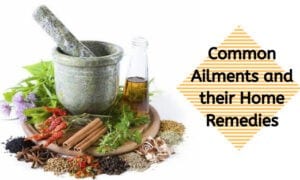Home Remedies
Blue indicates link

Essentially this article is going to cover certain items you may have in your home that through the ages have been used to treat inflammation, and anxiety, help wounds heal faster, improve mental alertness, and so on. Sometimes we have our own natural pharmacy in places like our kitchen cabinets. The most common items to cure certain ailments and illnesses are herbs and spices. In this article, we are going to cover the most common herbs that are used to cure or alleviate the symptoms of conditions ranging from cancer to acne.
Please be sure to check with your doctor before taking any herbal alternatives, especially if you are taking prescription medications.
Some Natural Care Home Remedies
Aloe Vera:
The clear gel aloe is used topically to treat osteoarthritis and burns, plus several skin conditions like acne and sunburn. The fact is you can grow this plant in your home. Aloe can also be made into juice or dried to be taken orally. You may also purchase aloe supplements. Taken orally aloe is known for a variety of diseases such as diabetes, asthma, epilepsy, and osteoarthritis.
Cautions:
Using aloe vera on surgical wounds may inhibit their healing. If taken orally, it may cause abdominal cramps and diarrhea. If you have diabetes and take glucose-lowering medications you should be careful taking aloe orally as studies suggest aloe may decrease blood glucose levels.
Traditionally used in Chinese medicine in combination with other herbs it was used to boost the immune system. It is still widely used for chronic hepatitis and as an additional cancer therapy. Astralagus is used to boost the immune system to help cure/prevent colds and help with upper respiratory infections. It is also used to boost heart health. The astragalus root is used in soups, teas, extracts, and capsules and is generally used with other herbs like ginseng and licorice.
Cautions:
Astragalus may interact with medications that suppress the immune system.
Bilberry:
This fruit is used to treat diarrhea, menstrual cramps, eye problems, varicose veins, and circulatory problems. The leaf of the bilberry plant is used to treat diabetes but only after checking with your doctor. It is claimed that the bilberry fruit helps improve night vision.
Cautions:
Though bilberry fruit is considered safe, high doses of the leaf or leaf extract may have possible side effects. Therefore everything is in moderation.
Chamomile:
Chamomile has a calming effect and is often used to counteract sleeplessness and anxiety as well as diarrhea and stomach conditions. Topically chamomile is used in the treatment of skin conditions and mouth ulcers. The chamomile plant has flowering tops that are used to make teas, extracts, and tablets. It can also be used as a skin cream or ointment for clearer skin. Chamomile may also be used as a mouth rinse.
Cautions:
Some people have developed rare allergic reactions from eating or coming into contact with chamomile. These reactions include skin rashes, swelling of the throat, or shortness of breath. I personally have been drinking chamomile tea and it does give me that calming effect and reduces my anxiety naturally.
Cranberry:
Cranberry fruit and leaves are used for many healing conditions, including wounds, urinary disorders, diarrhea, diabetes, stomach, and liver problems. Cranberries are often used in treating urinary tract infections and stomach ulcers. They may also be useful in preventing dental plaque and in preventing E. coli bacteria from adhering to cells along the urinary tract wall. Cranberry fruit can be eaten straight, made into a juice, or used in the form of extracts such as teas, or tablets as well as taken as a dietary supplement.
Cautions:
Drinking too much cranberry juice can lead to an upset stomach and diarrhea.
Dandelion:
Throughout history, dandelions have been used to treat liver, kidney, and spleen problems. Dandelions are sometimes used in liver and kidney tonics as a diuretic and for simple digestive issues. The dandelion leaves and roots, sometimes the entire plant are used in teas, capsules, and extracts. The leaves are used in salads or are cooked and the flowers are used to make dandelion wine.
Cautions:
While using dandelions is typically safe there are a few instances of upset stomach and diarrhea caused by the plant. If your gallbladder is inflamed or infected you should avoid using dandelion products.
 Echinacea:
Echinacea:
Traditionally echinacea has been used to boost the immune system to prevent colds, flu, and various other infections. Echinacea can also be used in the treatment of wounds, acne, and boils. The roots and the exposed plant are used either fresh or dried for teas, juice, extracts, or in preparation for external use.
Cautions:
Taken orally echinacea generally does not cause any problems. Some people may have some allergic reactions when it is used externally like rashes.
Evening Primrose Oil:
Since the early 1900’s evening, primrose oil has been used to fight eczema and recently it has been used to treat inflammatory conditions. Evening primrose oil has also been used in the treatment of breast pain during the menstrual cycle, symptoms of menopause, and premenstrual issues. It also relieves the pain caused by rheumatoid arthritis. The oil is extracted from the seeds. You will be able to find it in capsule form and as an essential oil in many health stores.
Cautions:
There may be some mild side effects such as stomach upset or headache.
Flaxseed is typically used as a laxative and to alleviate hot flashes. Flaxseed oil is used to treat arthritis pain. Both herbs are also used to fight high cholesterol and can be beneficial for those suffering from heart disease. Flaxseed, either in its whole or crushed form may be mixed with water or juice and then ingested. It is also available as a powder. You can also get flaxseed in liquid or capsule form.
Cautions:
It is essential to take flaxseed with plenty of water or it could cause constipation. It is not recommended to take flaxseed if you are taking any prescription medications without consulting with your doctor first.
Garlic:
Garlic is usually used as a dietary supplement for those with high cholesterol, heart disease, and high blood pressure. It also may decrease the hardening of arteries and is also linked to preventing stomach and colon cancer. It can also be used topically or orally to heal some infections including those dealing with the ear. Garlic cloves may be eaten either raw or cooked or may be powdered and used in capsules.
Cautions:
Some common side effects are bad breath and body odor, heartburn, and upset stomach. Garlic can also thin your blood and should not be taken before any surgeries, or dental work, or are prone to bleeding. Do not use garlic if you are using medications to treat HIV.
Ginger:
Ginger is used for treating stomach aches, nausea, and diarrhea. Ginger is also used to fight off colds and flu and may be used to relieve post-surgery nausea or nausea caused by pregnancy. It has been used to relieve pain from arthritis and other joint pain and muscle pain. Ginger root can be found dried, in powder forms, or in teas.
Cautions:
Side effects are rare but they can include gas, bloating, or heartburn.


Ginkgo:
The extract from Ginkgo leaves has been used to treat asthma, bronchitis, fatigue, and tinnitus. It is also used to improve memory, especially in the treatment of Alzheimer’s disease and dementia. Ginkgo is also taken to treat sexual dysfunction, multiple sclerosis, and other health issues. Ginkgo leaf extracts are made into tablets, capsules, or teas.
Cautions:
Some common side effects are headache, nausea stomach upset, diarrhea, dizziness, or skin irritations. Ginkgo may also increase bleeding risks for those having surgery or have blood disorders. Please make sure your doctor is aware before any type of surgery. Uncooked ginkgo seeds are toxic and may cause seizures.
Green Tea:
Green tea and its extracts have been used in treating and preventing breast, stomach, and skin cancers as well as improving mental alertness, aiding in weight loss, lowering cholesterol, and preventing your skin from sun damage. Green tea is typically brewed and drunk. Extracts can be taken in capsule form.
Cautions:
While green tea is generally safe for adults, there have been a few reports of liver problems occurring in those who drink excessive amounts of green tea. Green tea should be taken with food and should be avoided by anyone suffering from liver problems.
Milk Thistle:
Milk thistle is used as a protective measure for those with liver problems and in the treatment of liver cirrhosis, chronic hepatitis, and gallbladder diseases. It is also used to lower cholesterol and reduce insulin resistance in those with type 2 diabetes. It also reduces the growth of cancerous cells in the breast, cervix, or prostate. Milk thistle seeds can be obtained in capsule form, extracts, and strong teas.
Cautions:
Occasionally milk thistle seeds may cause diarrhea, upset stomach, or bloating.
Always see your doctor before taking any herbal alternatives.
St John’s Wort:
St Johns Wort has been used for hundreds of years to treat mental illness and reduce nerve pain. It is also used as a sedative in malaria treatment and as a balm for wounds, burns, and insect bites. It is commonly used to treat depression, anxiety, and sleep disorders. The flowers are used in extract form, for tea and capsules.
Cautions:
A possible side effect of using St John wort is an increased sensitivity to light. Other common side effects are dry mouth, sexual dysfunction, stomach symptoms dizziness, and fatigue. It is essential to consult with your doctor if you are taking any other medications such as birth control, antidepressants, HIV medications cancer drugs, and anticoagulants.
Turmeric:
Help for many health ailments, especially when black pepper is added. Turmeric Curcumin. Used to aid in digestion, liver function, and arthritis pain and inflammation. It is also taken to regulate the menstrual cycle. Applied to the skin in a paste form (mix with water) it can be applied to the skin to treat eczema and wounds. Turmeric also helps with heartburn, stomach ulcers, and gallstones. The stems of the turmeric plant are ground and can be taken in capsule form. You can also get benefits from turmeric powder by adding it to your meals.
It is claimed to lead to all sorts of benefits, many of which are supported by science. This includes weight loss, reduced cholesterol, lower blood sugar levels, and improved symptoms of diabetes.
Cautions:
Considered safe for most adults. Although long-term use of turmeric may cause indigestion. Those with gallbladder problems should avoid turmeric.
Always consult with your doctor before taking herbal or alternative remedies.
Thank you for reading
Michael
Comments are welcome
Hi Michael. Very useful article. Health is most important what we have and taking under consideration covid situation and related to it difficulties with access to doctors such information are extremely helpful. And its so much better to use natural ingredients then chemical medicines. Thank you for great post, looking forward to test your advices in practice.
Hi Cogito,
Thank you for your comments. I always prefer the natural or herbal ways to have to take prescription medications. However, I strongly believe that everyone should follow their doctor’s advice first.
All the best,
Michael
Coping with any kind of illness is not an easy mission especially if it comes to herpes sickness. I’m also here to express my joy and tell the world the actual truth which is; there is an herbal cure for herpes infection, all my career I’ve lived my life believing this. Don’t be fooled by selfish people who say there is no cure.